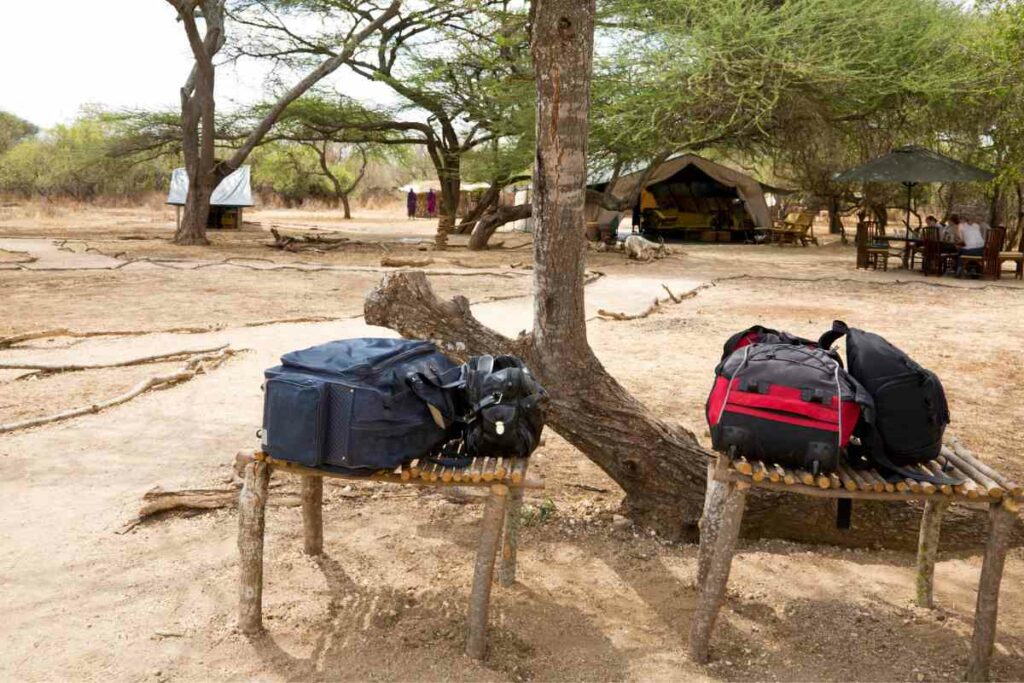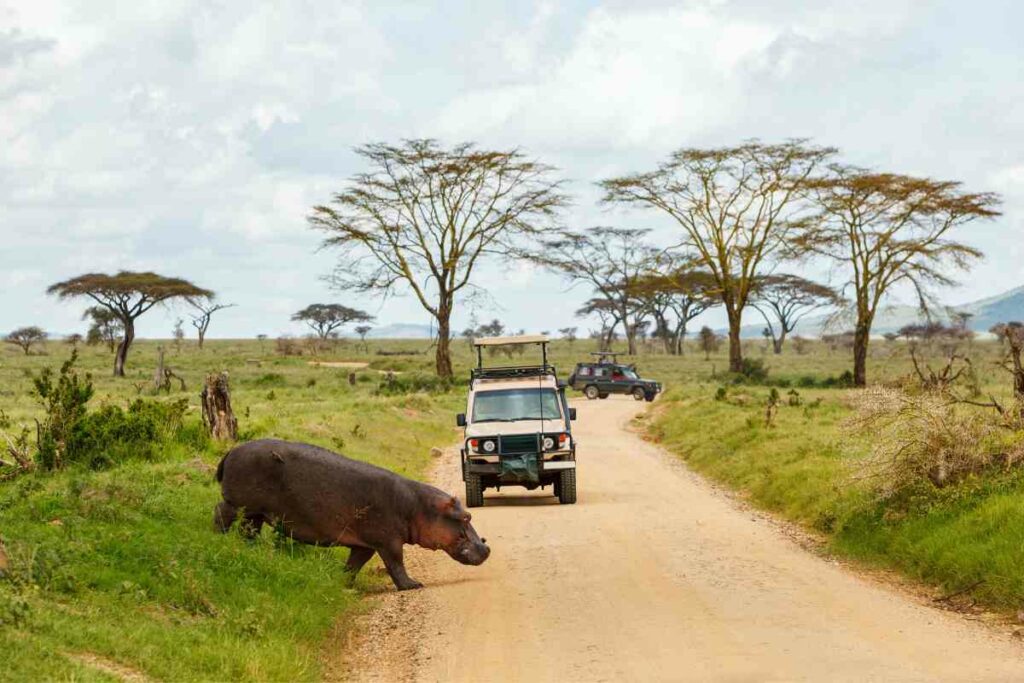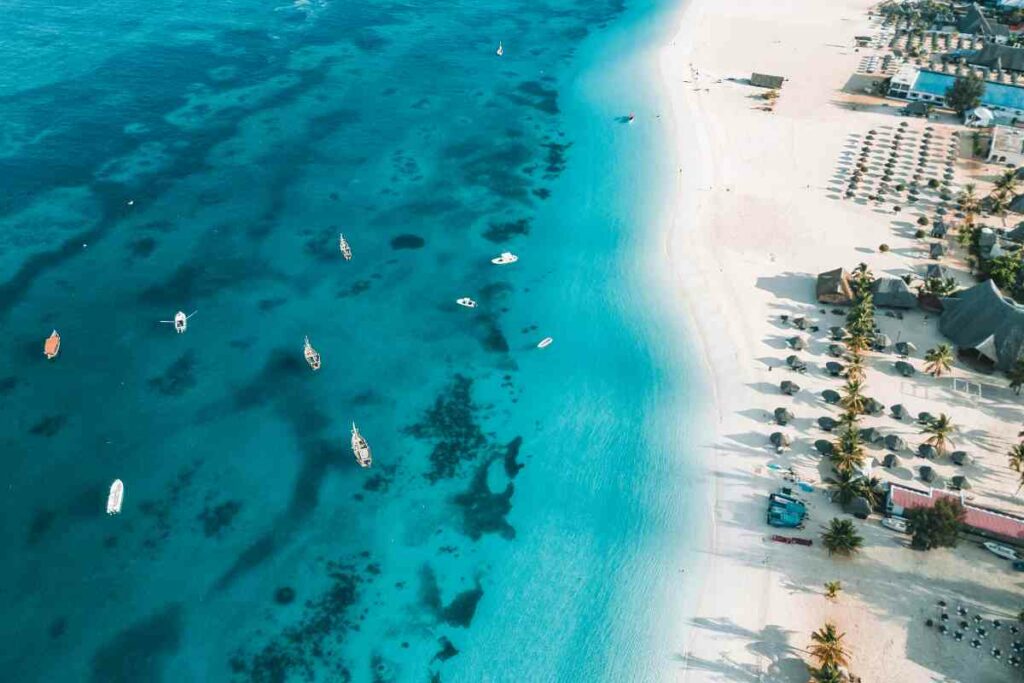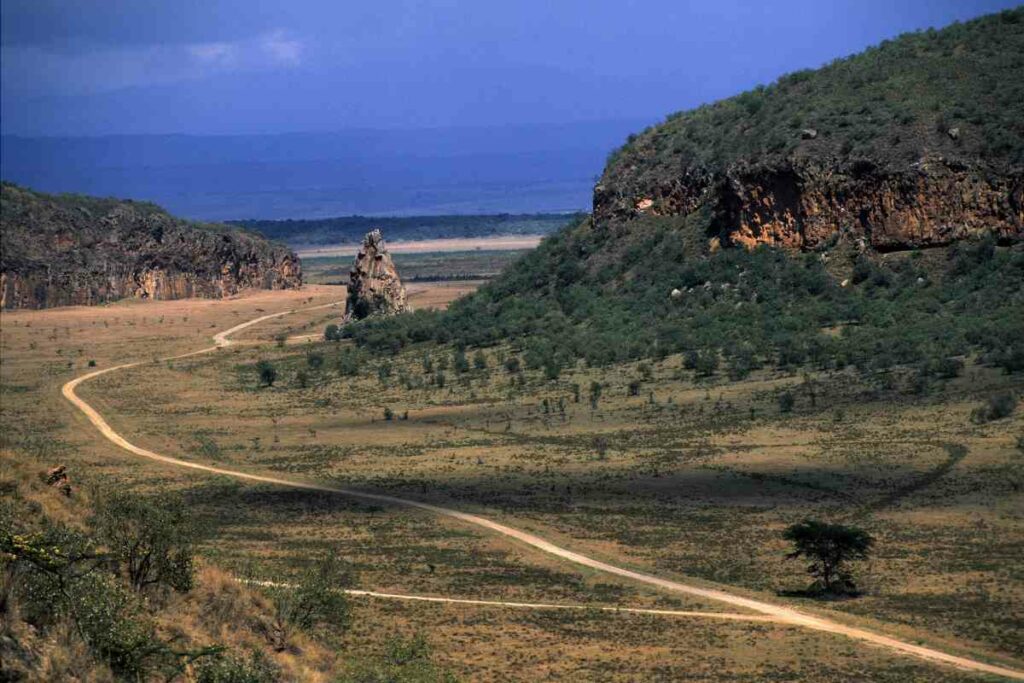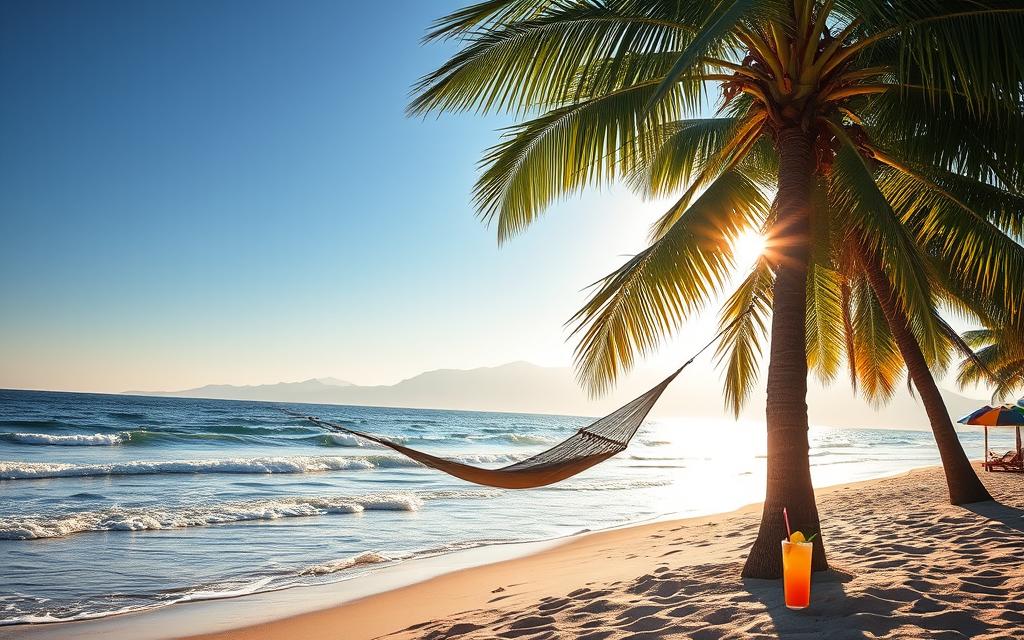Kenya is a popular African destination rich with a wildlife experience. It’s home to the big five—lions, cape buffaloes, elephants, leopards, and black rhinos.
Besides, the country boasts diverse and rich cultural encounters, incredible landscapes, world-class beaches, and exciting city life in major towns.
However, for a comfortable stay and the best experience in Kenya, you need to know a few important things.
Here’s everything you need to know about traveling in Kenya.
1. Check Visa Requirements
You need a visa to visit Kenya, depending on your country of origin.
You can apply for your visa online through Kenya’s official visa website.

It’s a detailed process that may require you to apply at least a month before you travel.
You’ll need to provide addresses, proof of return air ticket, phone numbers, travel itinerary, and a clear passport photo, as the agency may dictate.
The latest requirements also require uploading your Covid-19 test results, vaccination records, and health status.
Once issued with the visa, make at least two copies, which you can use while touring the country.
Authorities may require you to produce your visa, even for local flights.
2. Pack Smart for the Weather
Kenya has two rainy seasons. Long rains between March and May, and short rains from October to December.
The weathers tend to be cold during early mornings, and temperatures rise during the day.

Nairobi, the country’s capital city, is particularly chilly around June and July.
However, the weather on the Kenyan coast tends to be warmer throughout the year.
Always Good Idea – Pack a mix of wooly and breathable clothes if you plan to experience life in Nairobi and extend your vacation to the sandy Kenyan coastal beaches.
The dress code is moderately conservative, especially among the coastal Muslim communities.
Otherwise, shorts, dresses, and sleeveless tops are okay in most towns in Kenya.
3. Get Your Vaccinations
Vaccination before traveling to some foreign countries can protect you from various illnesses and infections.
Check with your doctor two months before traveling for recommendations. For Kenya, some vaccinations are compulsory.

Malaria risk is high in most parts of Kenya, especially on highlands above 8,200ft.
The risk is lower in Nairobi. Get advice on the best anti-malarial vaccines before visiting the country.
Other illnesses to seek vaccinations against include yellow fever, typhoid, cholera, meningitis, Diptheria, tetanus, and rabies.
4. Go on a Safari
A visit to Kenya may feel incomplete before exploring its rich natural resources and wildlife experience.
From the Great Wildebeest Migration in Maasai Mara park to birdwatching in Lake Nakuru National Park, nature lovers have a lot to experience.
Here’s a list of parks you can visit in Kenya and what to expect.
Maasai Mara
Plan a trip to Maasai Mara National Park to experience the migration of more than 1.5 million wildebeest through Kenya and Tanzania.
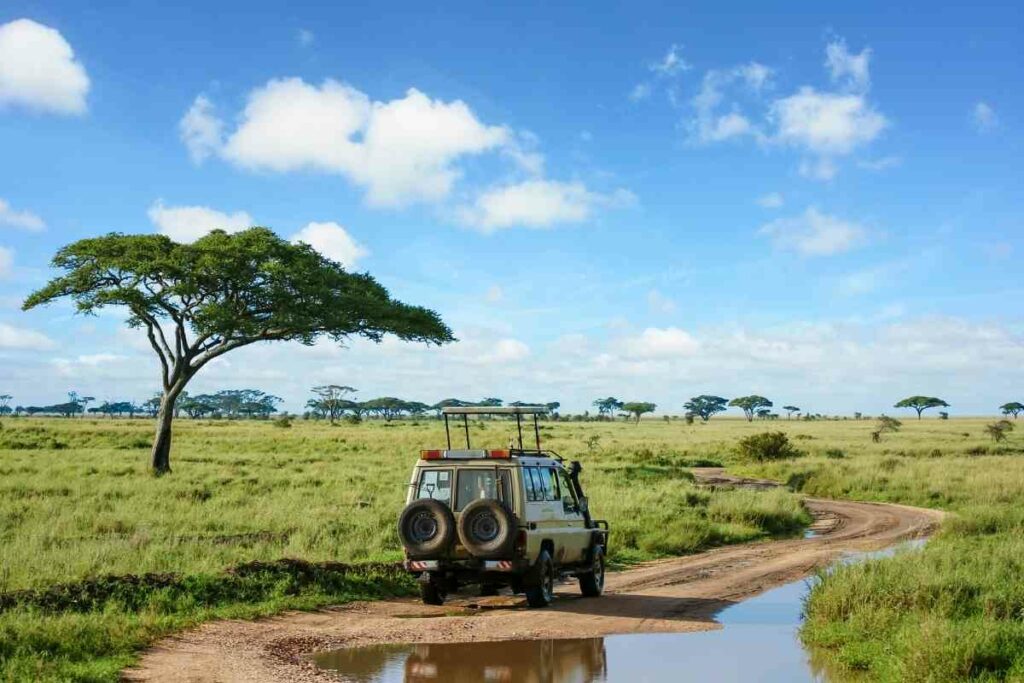
It’s a yearly event that you can watch from late July to around November. You’ll also see cheetahs, Zebras, hippos, and lions in this park.
Lake Nakuru
If you’re a birdwatching enthusiast, you can’t miss visiting Lake Nakuru in the wet summer months between November and April.
Here, you’ll watch millions of pinkish flamingos flying in from different countries to feed on algae in the alkaline waters of lake Nakuru.
Amboseli National Park
The park is situated 240km South East of Nairobi.
Here you’ll enjoy an epic birdwatching experience, non-migrating wildebeest, giraffes, and elephants, among other wild animals.
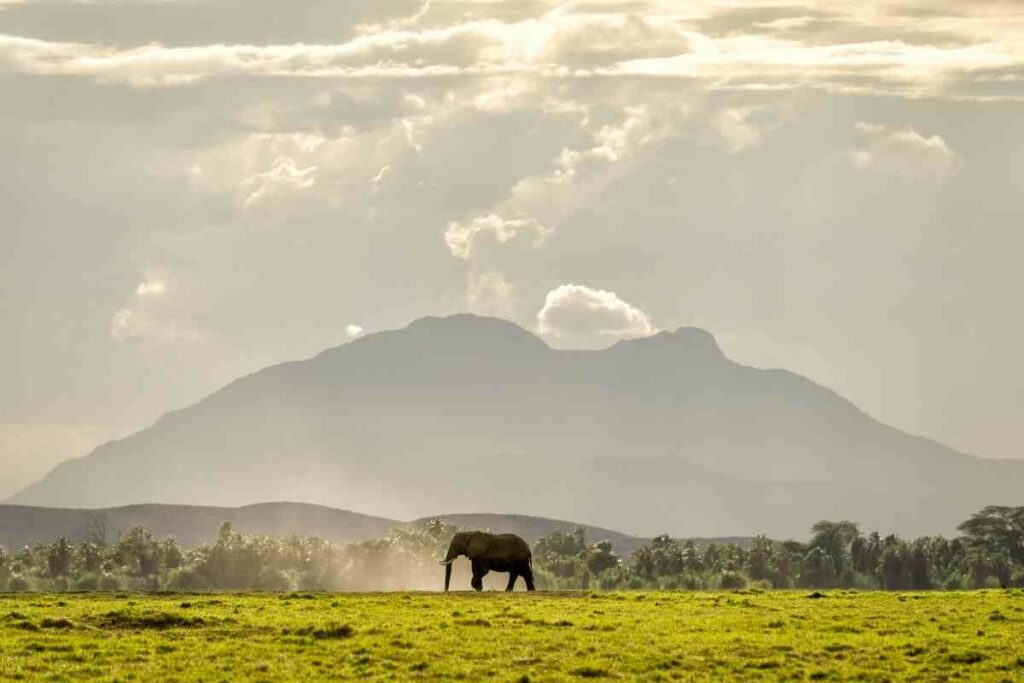
You’ll also enjoy a spectacular view of Mount Kilimanjaro in Tanzania from this park.
Hells Gate
Hells Gate in Naivasha is a two-hour drive from Nairobi.
You’ll experience beautiful sceneries, some of which have inspired great moviemakers.
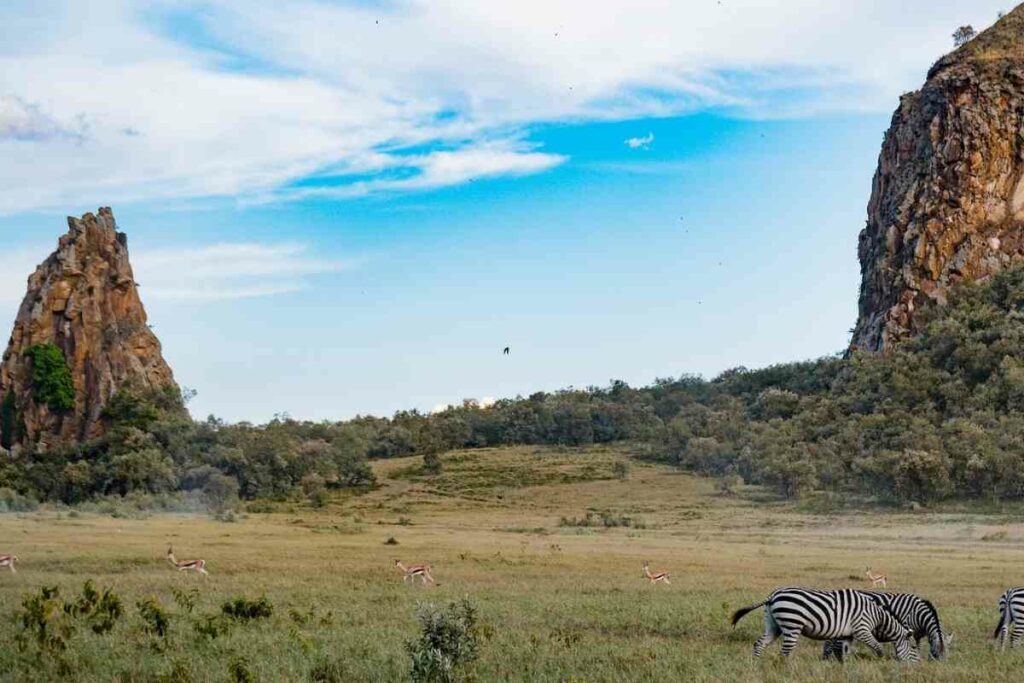
Besides the epic wildlife experience, you can enjoy rock climbing and cycling at this park.
Mount Kenya
Visit Mount Kenya—one of the most famous East African mountains after Mount Kilimanjaro.
Besides the physical hiking experience, you’ll enjoy wildlife.
5. Greetings and Appreciations
Learn the local greeting to trigger conversations and connect with people more personally.
“Jambo” is more common for the greeting, and they’ll also reply with “jambo.”
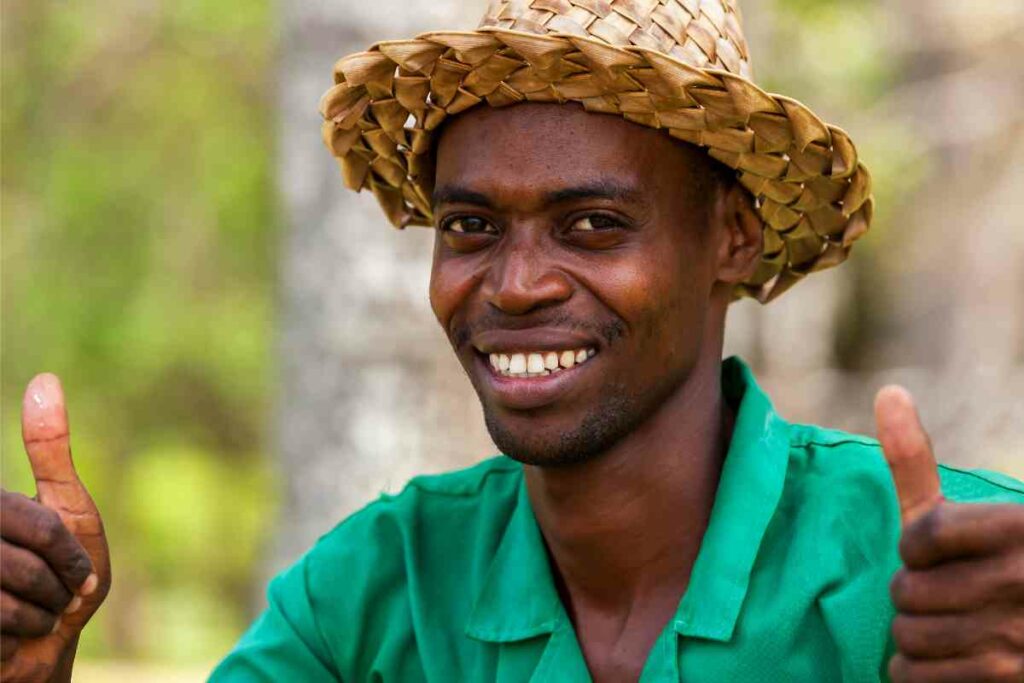
You can say “niaje,” which means “how are you” when interacting mostly with the youthful city dwellers. The common reply is “poa‘”—meaning I’m good.
Express gratitude with a simple phrase of “Asante Sana,” which means “thank you” whenever you receive a satisfactory service or treatment.
6. Local Food
Most local Kenyan food is different from those in Western countries.
Many locals love a simple maize flour mash called ugali, served with roasted beef, referred to as nyama choma, and sometimes served with chicken.
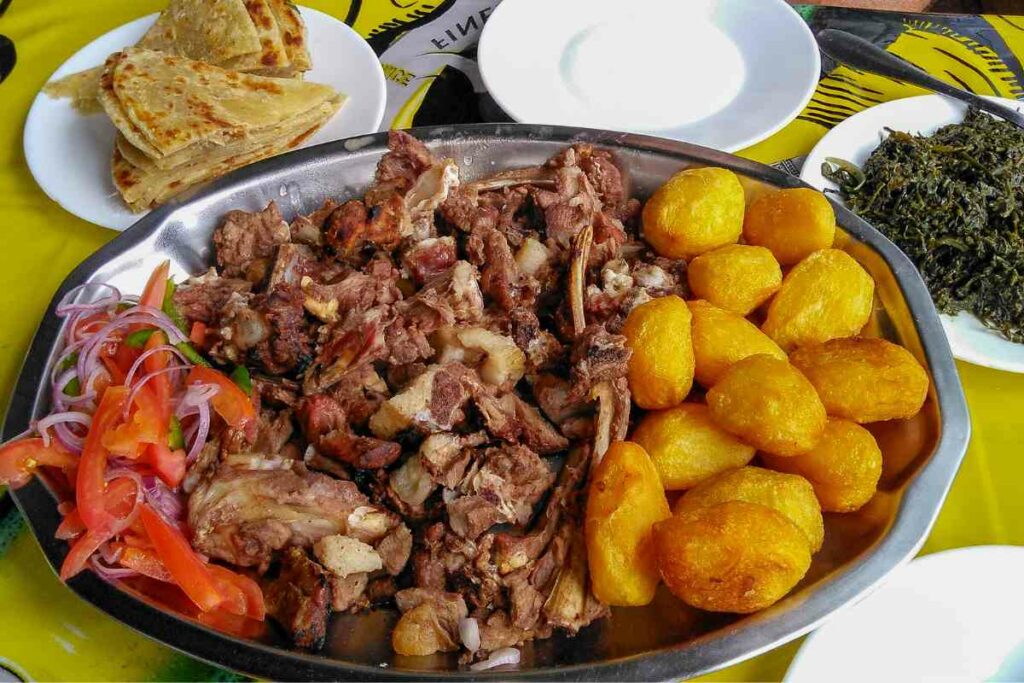
Most people enjoy eating it with their hands rather than using cutlery.
There are a lot of delicious street foods to try. Be cautious of hygiene as they may affect your stomach before you adjust.
Visit the coast for an influence of Asian dishes, including chapatis and lentil samosas.
Try out some high-end restaurants in major cities, serving intercontinental dishes for visitors who prefer to stick to their native diets.
To Consider – Although not compulsory, carry some loose money to tip porters and housekeepers if you like their services. A dollar or two is enough. Avoid giving tips for preferential treatment.
7. Singe Use Plastic Bags Are Banned
Kenya is among the leaders in banning manufacturing, selling, and using plastics, especially single-use polythene carrier bags.
The nationwide ban was implemented in 2017 as an environmentally conservative measure.
Avoid using plastic bottles, straws, and bags and disposing of them publicly.
Anyone caught doing so may face up to a four-year jail term or pay up to a $40,000 fine.
8. Protect Yourself Against Insects
You’ll likely encounter insects that can be potentially dangerous when they bite.
But you can always prepare to deal with them using insect repellants or nets at night for flying insects.
Buy a mosquito jacket to protect yourself from mosquito bites during cold climates.
Wear long sleeve shirts and pants if you can to protect your skin from insect bites.
Spray your room with insect repellants at night before sleeping.
Read instructions carefully before spraying, especially where there are children. Wear light-colored clothes instead of dark hues.
Avoid using fragrant soaps, perfumes, lotions, aftershave, and hairspray that attract insects and bugs to you.
Use scents that block their receptors and find your skin unattractive.
9. Prepare to Deal with Heavy Traffic
If you plan to stay more in the city, especially in Nairobi, you must prepare for heavy traffic jams in the morning and evening.
You may need to plan early to get anywhere within Nairobi, including catching your flights in time.
Traffic is light in other parts of the country.
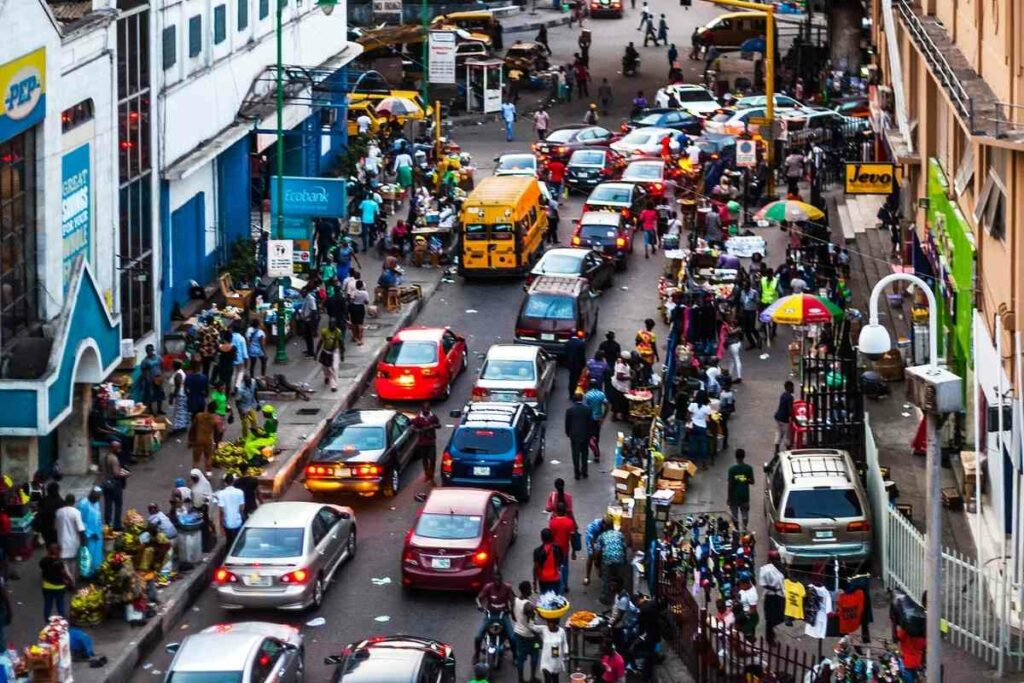
Besides heavy traffic in the capital city, most roads within the country are unpaved and plagued with potholes and bumps.
Road accidents remain a major threat to Kenyan travelers.
Avoid driving at night as you risk running into potholes or huge bumps in poorly lit areas.
Property theft on moving cars is high in Nairobi and other major cities in Kenya.
As a Result – Keep your car doors closed throughout to protect yourself from thieves always on the radar of unsuspecting drivers.
Keep your valuables safe in the car, and avoid talking on the phone with your windows open.
10. Carry a Backup Power
Power cuts are expected in Kenya but don’t last long in major cities like Nairobi, Mombasa, and Kisumu.
Here is what we suggest:
- Carry a power bank to ensure your smartphone doesn’t drain to zero during extended blackouts.
- Carry a portable power source if you plan to go on a safari and spend some days in a safari camp.
- A decent flashlight will help you maneuver safely in the camps and stay safe from snakes and dangerous insects. Camps provide headlamps for the nights, but you may consider carrying an extra lamp to brighten up dim areas of your tent.
- Backup power sources, like a portable battery, may also be critical for reading at night or for your medical equipment like the CPAP machine.
- Carry a spare camera battery. Consider charging the batteries overnight for use during the day.
11. It’s Okay to Bargain
The bargaining culture is common among Kenyan consumers.
Price negotiations happen in almost all transactions apart from the supermarkets and select stores.

Typically, sellers will quote higher prices of items, which can be exaggerated for foreigners, and expect you to haggle over it until you meet on a middle ground.
It’s fun and humorous. Feel free to engage in the fun.
However, please don’t overdo it. Ensure you have money to pay for the item after some back-and-forth.
12. Local Mobile Payment Systems
Millions of Kenyans use a mobile-based payment service called M-Pesa.
It’s an amazing invention that allows you to load money on your phone and pay bills or send money to other subscribers directly from your phone.

Mombasa-Nairobi train operators prefer this payment method and may ask if you want to pay using cash or M-Pesa.
Consider signing up for the service if you plan to stay in Kenya for a little longer.
Locals use national identification cards to sign up, but your travel passport will suffice for visitors.
Plus, getting your sim card is easy.
There are multiple operators, but many prefer Safaricom, which is also the provider of money transfer services—M-Pesa.
You can use your registered sim card to call and buy data packages.
13. Keep Details of Your Embassy
Embassies offer more specialized assistance to their citizens.
Know the contact details of your embassy or consulate immediately after you step into the country, especially if you plan to stay long.

Your embassy can help you replace lost passports more easily and assist you if you are ill or injured.
To Be Safe – Ensure photos of your visa, passport, and vaccination proof, among other important documents, are in a soft copy such as email.
You can always carry a round your driver’s license if you feel uncomfortable moving around with your passport.
Conclusion
Kenya is a strategically positioned East African country with many beautiful sceneries to explore.
The magnificent wildlife and the country’s diverse cultural encounter make it one of the best African destinations for holidays.
However, it’s essential to pay attention to what to know about travel in Kenya before setting foot in the country or any foreign land as a visitor or tourist.
Only then can you be sure of your safety and an epic experience during your visit.



